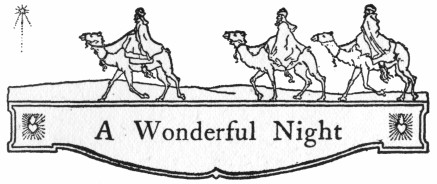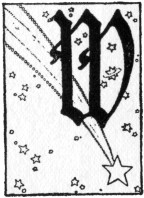|
|

By James H. Snowden

 e
live in an age of wonders. Great discoveries and startling events
crowd upon us so fast that we have scarcely recovered from the
bewildering effects of one before another comes, and we are thus kept in
a constant whirl of excitement. The heavens are full of shooting stars,
and while watching one we are distracted by another. So frequent is this
experience that our nerves almost refuse to respond to the shock of a
new sensation. We are no longer surprised at surprises. The marvelous
has become the commonplace, and the unexpected is what we now expect.
e
live in an age of wonders. Great discoveries and startling events
crowd upon us so fast that we have scarcely recovered from the
bewildering effects of one before another comes, and we are thus kept in
a constant whirl of excitement. The heavens are full of shooting stars,
and while watching one we are distracted by another. So frequent is this
experience that our nerves almost refuse to respond to the shock of a
new sensation. We are no longer surprised at surprises. The marvelous
has become the commonplace, and the unexpected is what we now expect.
Yet we are not to suppose that our age is the only one that has had its wonders. Other times had theirs also, only these old-time wonders have become familiar to us and ceased to be wonderful; but in their day they were marvelous, and some of them equalled if they did not surpass any wonders we have witnessed. The Great War was the most cataclysmic eruption that has ever convulsed the world, but it was not more revolutionary and sensational in the twentieth century than the French Revolution was in the eighteenth and the Reformation was in the sixteenth century. The discovery of America in the fifteenth century created immense excitement and was relatively a more colossal and startling occurrence than anything that has happened since.
The telescope and the Copernican theory were as great achievements in their day as the spectroscope and the nebular hypothesis are in our day. The most useful inventions and the most marvelous products of the human brain are not the railway and telegraph after all. The art of printing, which infinitely multiplies thought and sows it in the very air and every morning photographs the world anew, is a more useful invention and in its day was a great wonder. Still farther back, hidden in the mists of antiquity, lies the invention of the alphabet that is even more useful and marvelous. It is when we get back to the oldest tools, the hammer and plough and loom, that we come to inventions of the greatest fundamental utility, and we could better afford to give up all our modern magic machines than to part with these.
The oldest literature is ever the ripest, richest and best, and Homer and Shakespeare overtop all our modern writers as the Alps overshadow the hills lying around their feet. What modern preacher can compare in eloquence and power with Paul and Isaiah? Nature is ever full of new wonders, and yet the grass was as green and the mountains as grand and the golden nets and silver fringes of the clouds were as resplendent in the days of Abraham as they are to-day. We are the heirs of the ages, but wonder and wisdom were not born with us, and with us they will not die.
Where must we go to find the greatest wonder? Not to the scientist’s discoveries and the inventor’s cunning devices: the greatest marvel is not material but spiritual; and to find it we must not look into the present or future, but go back to the first Christmas morning. On that morning the Judean shepherds had a story to tell which all they that heard it wondered at and which is still the wonder and song of the world. The birth of Jesus is absolutely the greatest event of all time. Whatever view is taken of him he has become the Master of the world. Christ has created Christendom, silently lifting its moral level as mountains are heaved up against the sky from beneath. The coming of such a unique and powerful personality into the world is an infinitely greater wonder than the discovery of a new continent or the blazing out of a new star in the sky.
Table of Contents | Next Chapter
eBooks Home | Inspirational Articles | General Essays | Sermons | Library - Home | Baselios Church Home
-------
Malankara World
A service of St. Basil's Syriac Orthodox
Church, Ohio
Copyright © 2009-2020 - ICBS Group. All Rights Reserved.
Disclaimer
Website designed, built, and hosted by
International Cyber Business Services, Inc., Hudson, Ohio